Landmark find of prehistoric remains sparks interest of public, hopes of academia
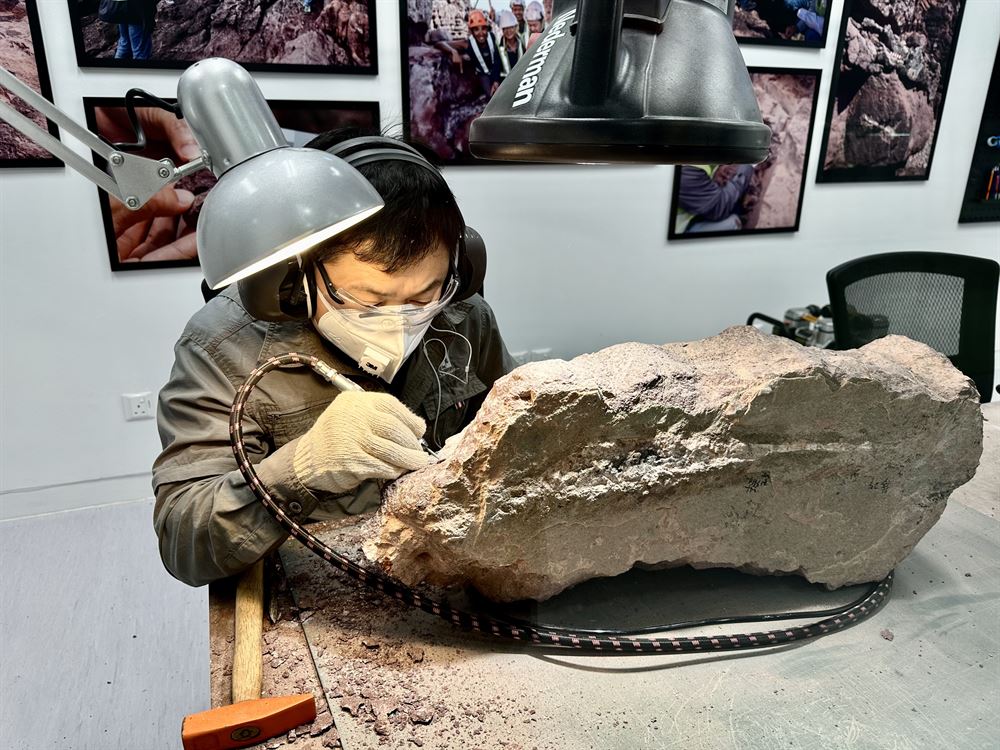
One day late in December, an excited group of young students crowded into the Hong Kong Heritage Discovery Centre in the city's Tsim Sha Tsui district. Chatter filled the air as their curious young eyes followed the movements of scientists working behind a glass enclosure.
The scientists were using specialized instruments to meticulously examine stones containing the remnants of a dinosaur from the ancient Cretaceous period, about 145 million to 66 million years ago.
The children peered at the intricate skeletal imprints etched into the rocks, as if the large dinosaur had journeyed through the eons to meet, or terrify, them.
The viewing at the aptly named Dinosaur Parlour exhibition hall, marked the completion of the excavation of the first dinosaur fossils found in Hong Kong. The fossils were discovered on Port Island in the Hong Kong UNESCO Global Geopark in the northeastern waters of the city.
The Hong Kong Special Administrative Region government announced the remarkable discovery in October and invited experts from the Chinese mainland to join the excavation. Over time, around 30 rocks containing dinosaur fossils were unearthed.
Among the team of experts tasked with excavating and preparing the precious discoveries were Pei Rui and Zhao Qi from the Institute of Vertebrate Paleontology and Paleoanthropology at Chinese Academy of Sciences in Beijing.
The nation's top dinosaur researchers vividly recall the sense of anticipation when they began examining the fossils.

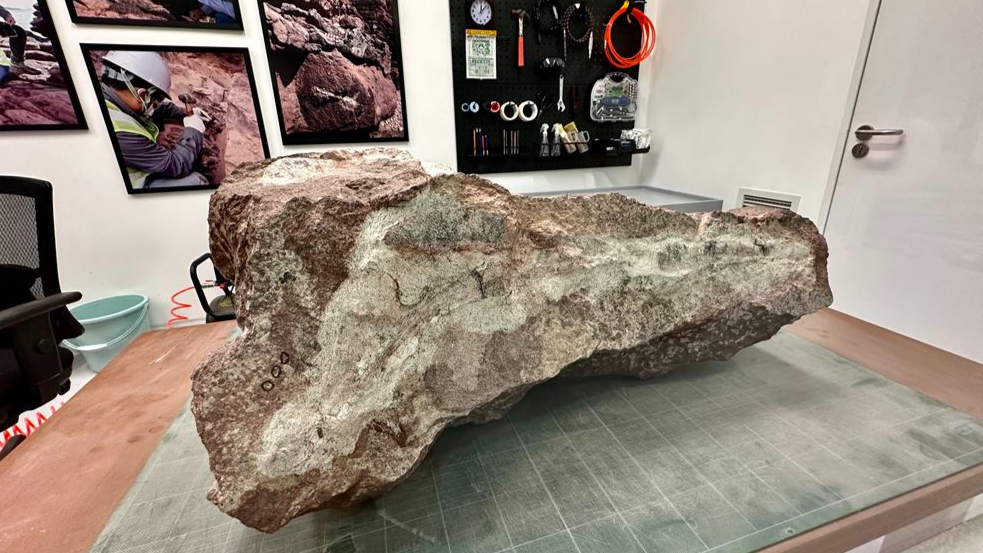
Both experts said that the bone structures within the rocks were not readily visible, leading to initial uncertainty about the discovery. However, that uncertainty only added to their excitement when they confirmed the find.
"When I saw the clear dinosaur features under the microscope, I immediately called Pei excitedly, telling him that I was 100 percent sure this was a dinosaur fossil," Zhao said.
"In most people's minds, Hong Kong is a place with skyscrapers everywhere. It's hard for me to imagine finding fossils in such an international metropolis."
Pei said he was aware of Hong Kong's vast country parks, but still found the discovery a new experience.
ALSO READ: HK unveils Dinosaur Parlour to display fossil specimens
Typically, the pair's fossil hunts involve traversing vast expanses of the Gobi Desert and other desolate landscapes, based on geological data. Sometimes they have to walk several or tens of kilometers before finding dinosaur tracks.
Uncovering fossils in a small location like Port Island, which spans a mere 0.44 square kilometers, was a first for China, they said. The discovery adds a new location to the nation's dinosaur distribution map, Pei added.
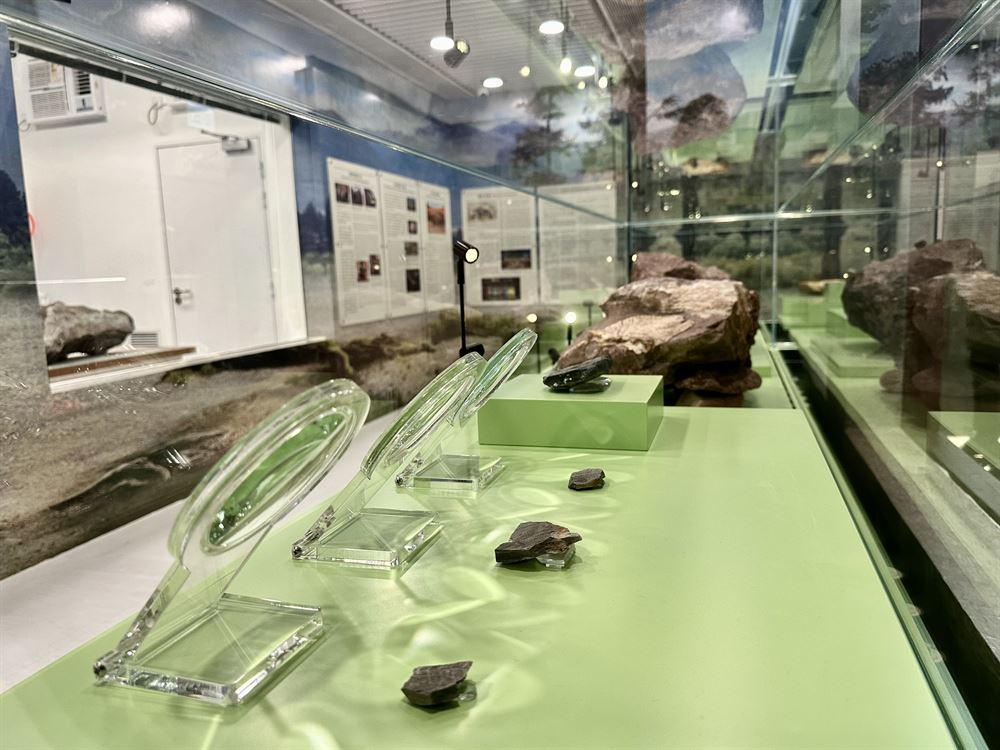
Bone structure
Hong Kong is a concrete jungle, but a group of dedicated people tirelessly search for dinosaur remains.
Michael Pittman, assistant professor at the School of Life Sciences at the Chinese University of Hong Kong, is one of the pioneers of dinosaur research in the city.
Raised in the city, and of mixed Chinese and English heritage, Pittman said China has a prominent role in global dinosaur studies, and Hong Kong makes a notable contribution. However, he believes many residents may be unaware of the city's world-class achievements in dinosaur research.
In October, Pittman's team, along with other scholars, finalized an academic article titled "Theropod trackways as indirect evidence of pre-avian aerial behavior," which featured on the Proceedings of the National Academy of Sciences of the United States of America publication.
Prior to that, research by Pittman and his team had appeared in prestigious international journals — such as Current Biology, and Nature Communications — multiple times over the years.
Pittman believes Hong Kong has significant advantages in dinosaur research. The field spans various disciplines, and Hong Kong, as an education hub with several world-class universities, offers ample academic resources and talent to meet research needs.
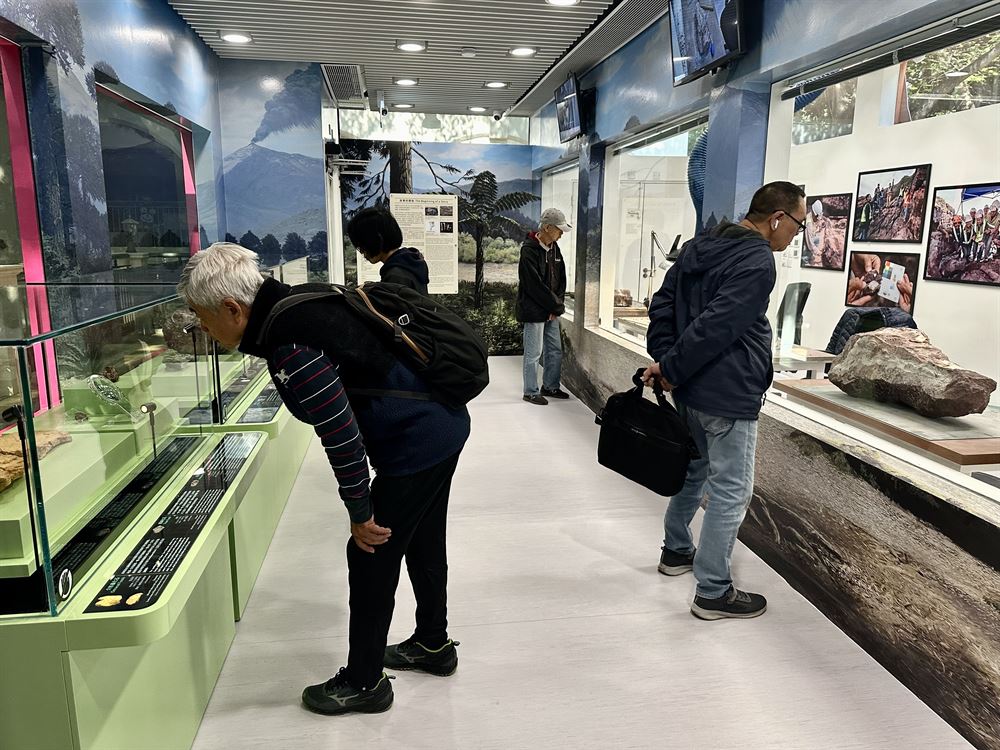
In addition, the HKSAR government offers strong support to achieve high education standards, which not only stresses its focus on research, but also reflects the traditional Chinese belief in the importance of education.
Hong Kong's proximity to the Chinese mainland is another advantage for dinosaur research in the city. Pittman said this factor influenced his decision to return to Hong Kong to pursue his career after studying abroad.
ALSO READ: Dinosaur fossils found in Hong Kong for first time
He vividly recalls his first scientific sojourn as a doctoral student to the mainland around 2013.
The sheer magnitude of dinosaur fossils scattered across the Gobi Desert left him awestruck. After arriving at the expedition site, he quickly uncovered dinosaur tracks. Just a few days later, he made a groundbreaking discovery — a new species of carnivorous dinosaur. "I was so thrilled at that moment. I just cheered and shouted on the desert sands like a complete madman," he said.
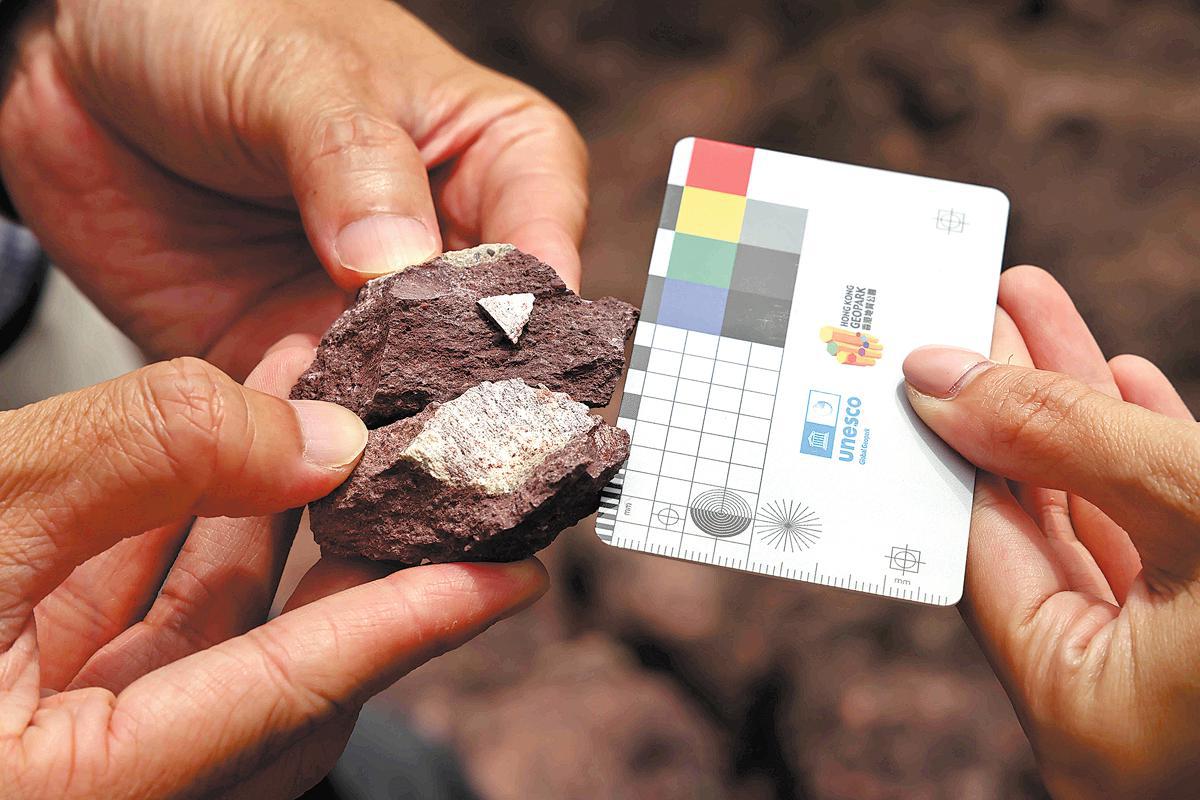
Mainland discoveries
Since then, he has undertaken numerous research trips to the mainland and collaborated with colleagues in the search and study of dinosaurs. Among his expeditions are visits to the Xinjiang Uygur autonomous region, and Hebei, Liaoning, Anhui, Sichuan, and Guangdong provinces. On his travels, Pittman has taken part in various projects alongside his mainland counterparts, including the unearthing of a new dromaeosaurid, a type of feathered raptor, in the Inner Mongolia autonomous region.
As a professor, he has also guided students from Hong Kong on numerous trips to the mainland to observe dinosaur specimens and have exchanges with mainland scholars.
His students are from diverse backgrounds and countries, including Italy and Argentina, with many of them drawn to Hong Kong for the sole purpose of studying dinosaurs.
Pittman said he was not surprised by the fossil finds on Port Island, as its sedimentary rock layers are where such discoveries are often made. The discovery of numerous dinosaur fossils in neighboring Guangdong had also convinced him that it was only a matter of time before similar ones were found in Hong Kong.
Both he and his students were thrilled by the Port Island discovery. He believes it will not only raise awareness in Hong Kong about dinosaur fossils, but also boost academic research, which will negate the necessity for researchers to travel elsewhere to view specimens.
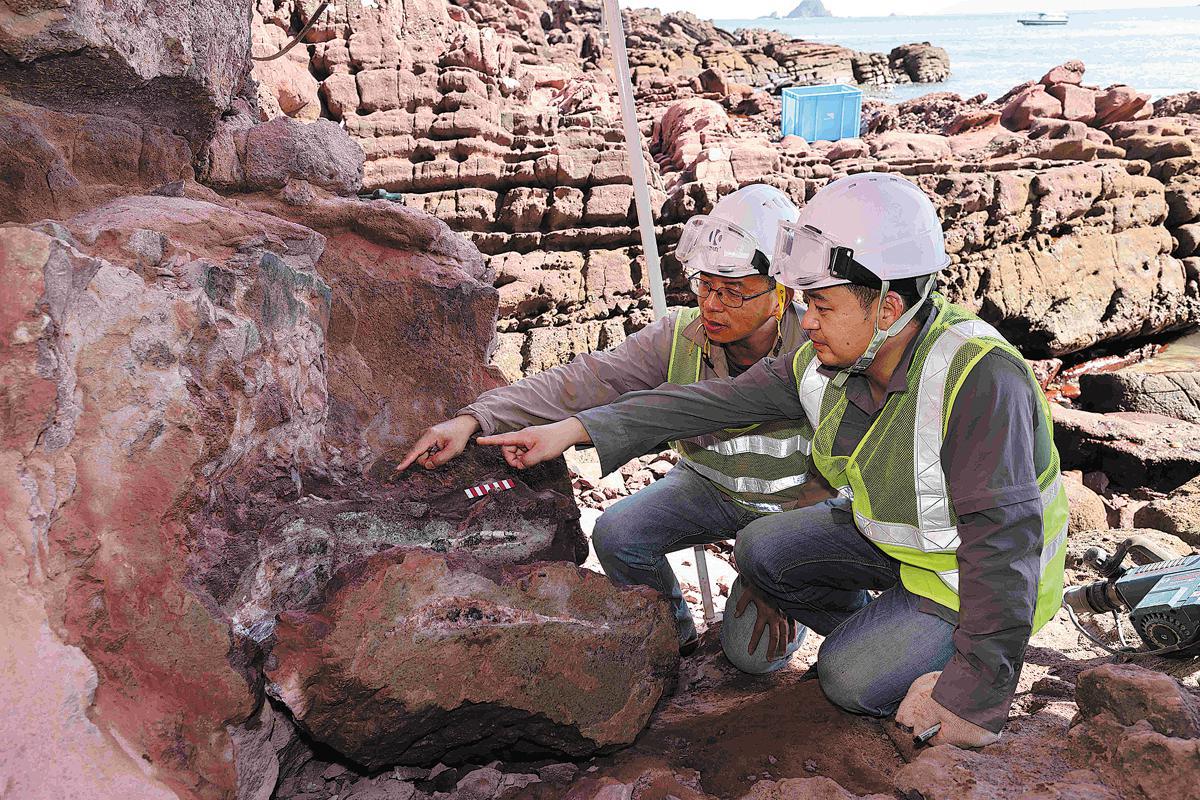
With the city now housing its own fossils, he hopes experts can be developed to work in dinosaur excavation, potentially opening up a new branch of academic research in the metropolis.
Apart from the positive academic outcomes, he believes the discovery also presents new commercial opportunities for the city. Industries such as tourism can benefit from the discovery due to the global interest in dinosaurs, Pittman said, as he urged Hong Kong tour operators to seize this opportunity. For example, ideas such as setting up small dinosaur-themed museums in places like geological park could be explored, he said.
Japan's Fukui City, for example, has leveraged its fossils, by building a dinosaur-themed museum and plaza, setting up photo opportunity spots for tourists, and developing a range of dinosaur-related products, including coffee.
City's secrets revealed
While the discovery of Hong Kong's first dinosaur fossils has grabbed the headlines, other prehistoric discoveries are nothing new to some residents, with conservation efforts also improving in recent decades.
In 1980, Devonian fish fossils were uncovered in the city's Plover Cove area. The fossils authenticate the rocks' Devonian Period origins and date back roughly 400 million years.
In 2014, a University of Hong Kong student "rediscovered" a 147-million-year-old Jurassic fish among specimens in collections at Stephen Hui Geological Museum. The discovery marked the first identification of a dinosaur-era fish and vertebrate from the Hong Kong area.
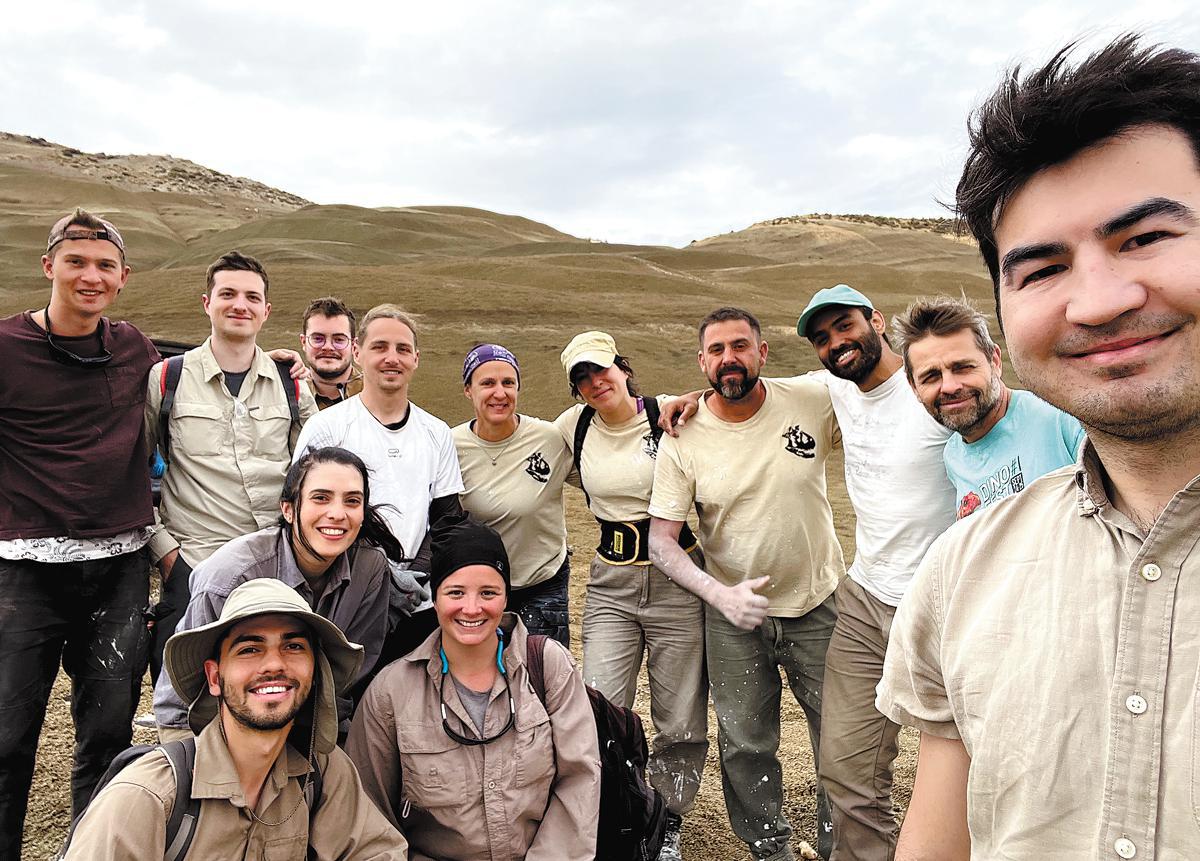
On social media, fossil enthusiasts keep providing information and updates about traces of fossils discovered in the city. Many of the finds have been confirmed by academic institutions and official bodies.
A 19-centimeter ammonite, or shelled cephalopod, fossil, is embedded in the marble floor of Taikoo Place — a modern commercial building in Quarry Bay district. Fossils of the shell-like creature, which became extinct approximately 65 million years ago, can also be seen on the wall of the MTR Sha Tin Station, alongside fossils of gastropods.
In 2020, fossils of marine creatures were also discovered in a limestone block used in a wall at the MTR Sunny Bay Station, igniting lively debate on the topic.
One post said a fossil was found embedded in the floor of a shopping mall in Sheung Wan district on Hong Kong Island. "It's so exciting and satisfying when you identify a fossil on your own," a comment under the post reads..
In November, reports of two Hong Kong tourists finding dinosaur egg fossils in Heyuan, a Guangdong city renowned for its abundance of such fossils, made headlines.
One of them, Erik Yip Hang-wing, a guide from the Hong Kong Geological Park who majored in geography, has been leading tours and educational programs since 2010.
Yip said while observing the local red sandstone with his companion, he noticed a distinct feature on a rock surface. Suspecting it might house dinosaur egg fossils, his hunch was later confirmed by experts from a local dinosaur research institute. The veteran guide said he was confident his initial assessment was right, due to his vast experience observing stones and strong interest in earth sciences.
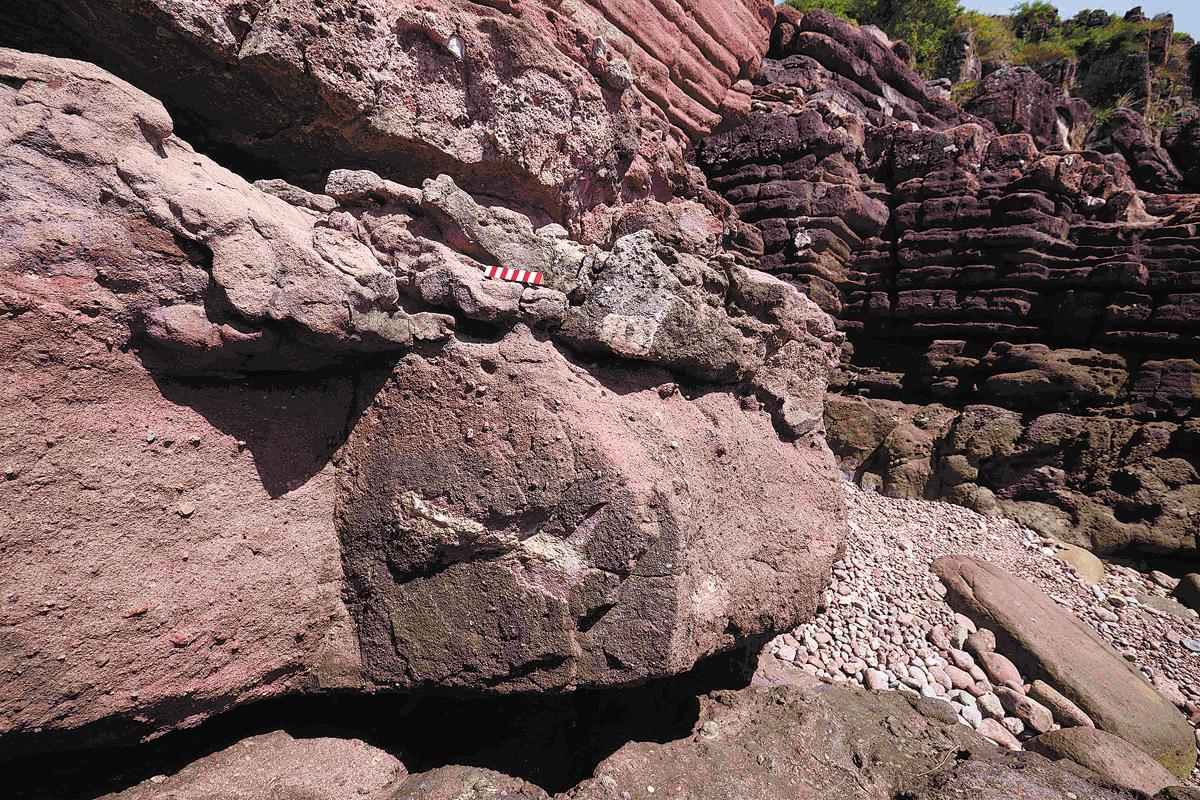
Polishing rocks
He hopes the discovery of dinosaur fossils in Hong Kong will open up new prospects for science education, and nature conservation in Hong Kong.
While leading tours, Yip often highlights to visitors the city's abundance of geological resources and wealth of fossils, where three distinct rock types are scattered almost 1,115 square kilometers.
He is hoping people can understand the importance of this and better protect their environment. However, he acknowledges that despite the growing attention paid to conservation, the general public in Hong Kong remains relatively uninformed about earth sciences, including geology and paleontology.
A key hurdle that needs to be overcome is many individuals feeling intimidated by complex scientific concepts or perceiving these fields as irrelevant to their everyday life. With over 20 years of hosting geology tours, Yip concedes that geology can seem dull to most people.
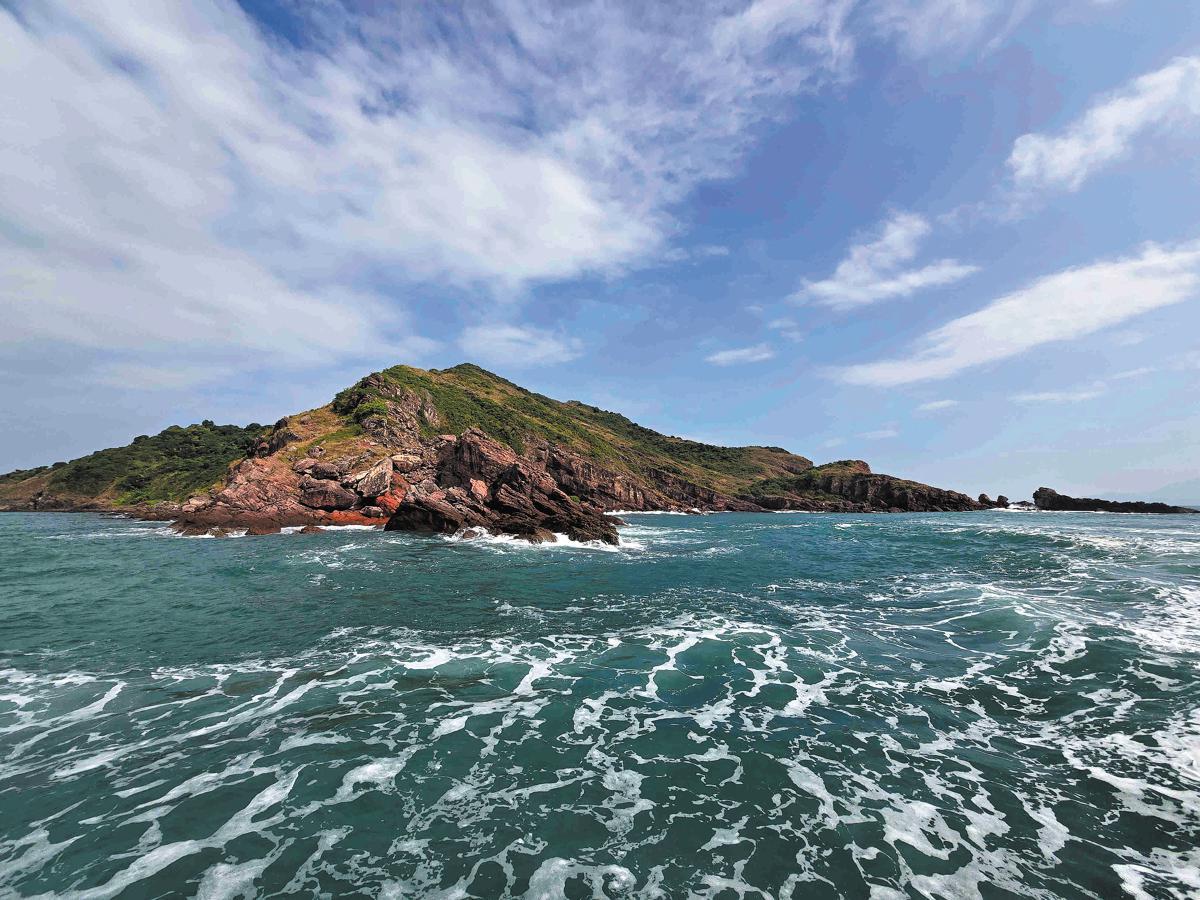
But dinosaur fossils stand out for their ability to generate curiosity. Drawing parallels with the success of dinosaur-themed intellectual properties like "Jurassic Park", he sees dinosaurs not only as a huge market for commercial activities, but also as a way to ignite curiosity in paleontology and other scientific areas.
Beyond just dinosaurs, he envisions that all the prehistoric creatures in Hong Kong, from osteoglossoid fish to ammonites, can serve as focal points for promotion and outreach in the future. They even have the potential to become trendy themes for commercial activities, he said.
Economic development and conservation efforts are not mutually exclusive, Yip said. Striking a balance between the two can attract more people to engage in conservation efforts.
"At the end of the day, conservation becomes achievable only when the public is interested in learning about the thing they must safeguard," Yip said.


